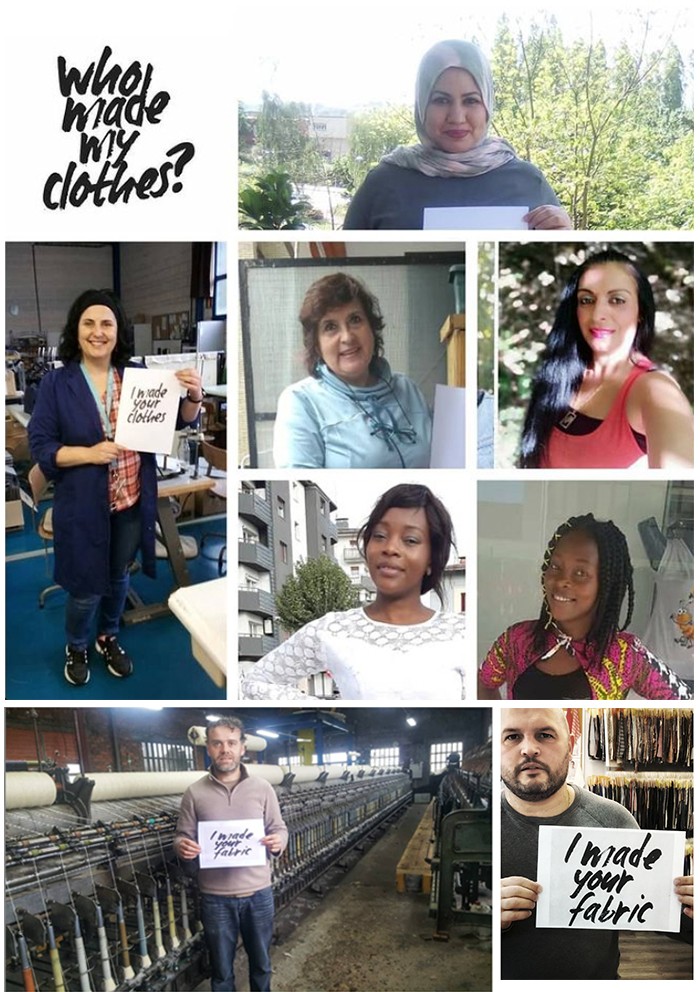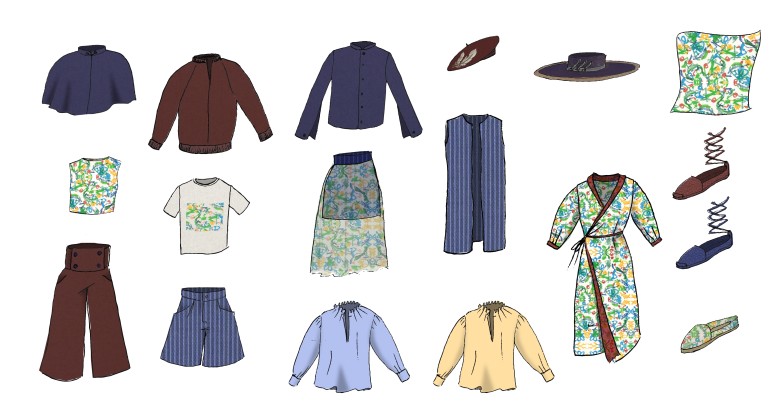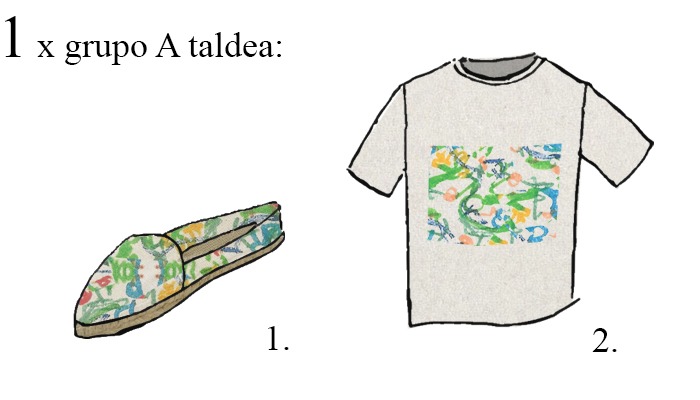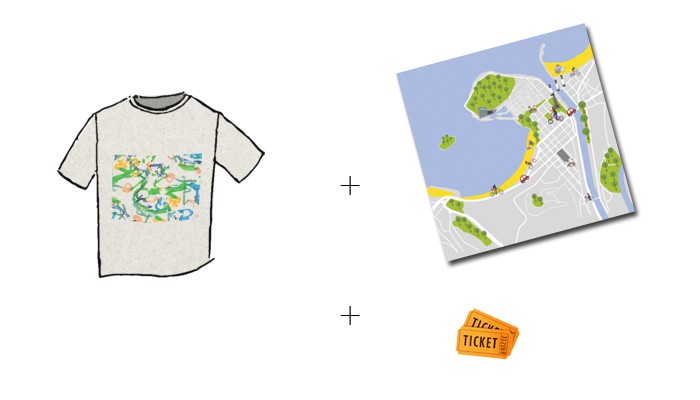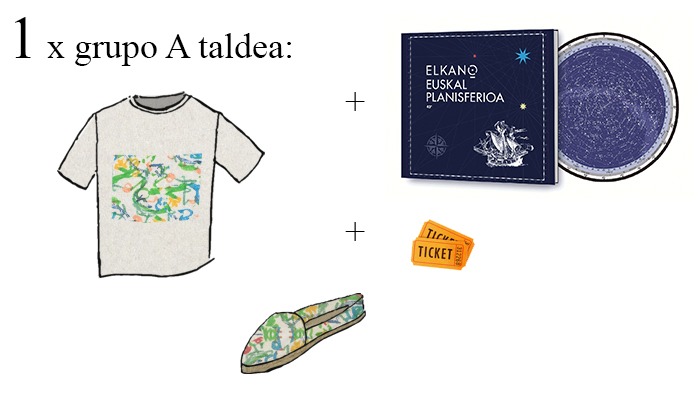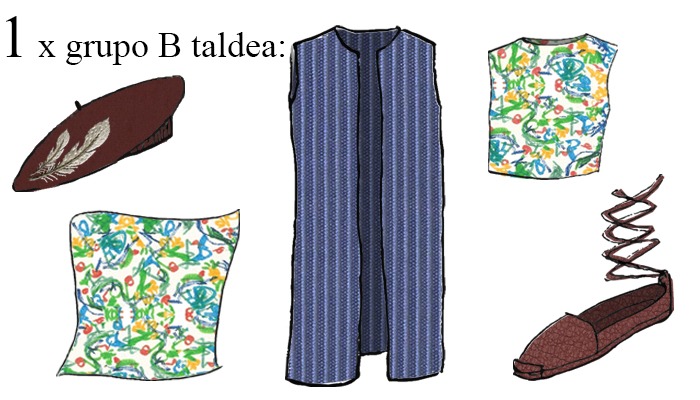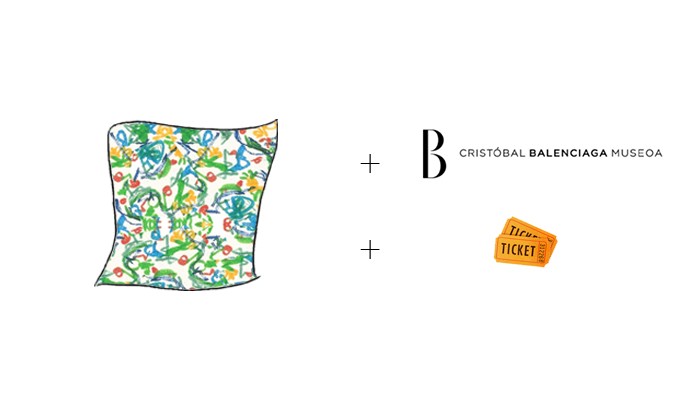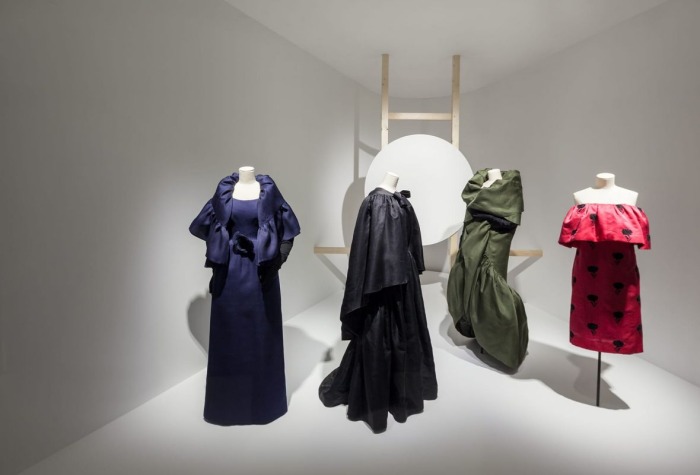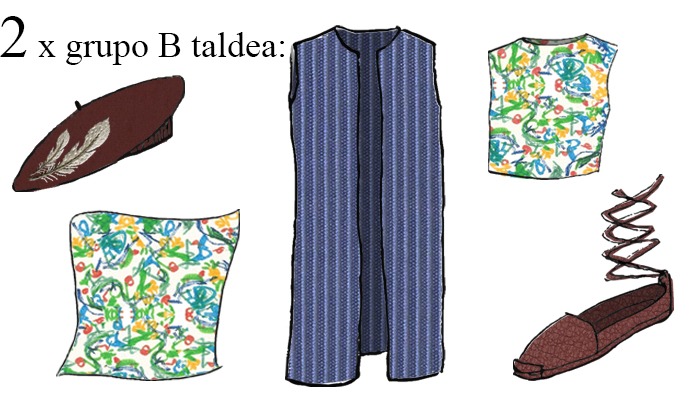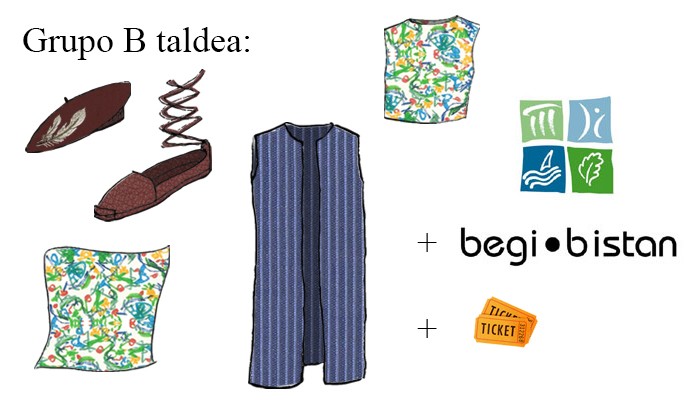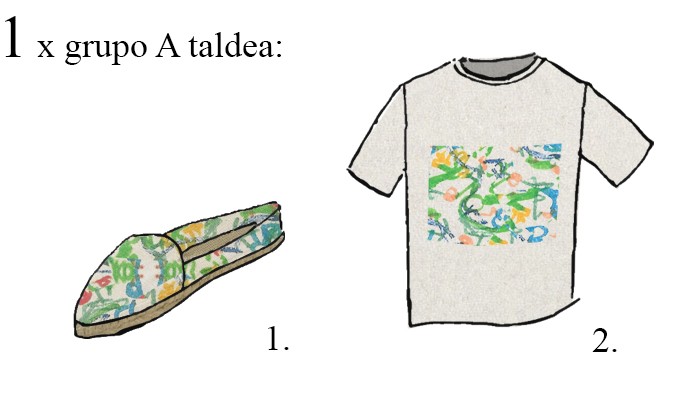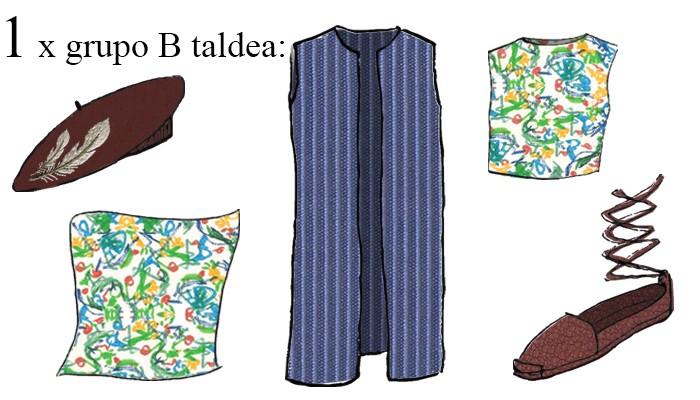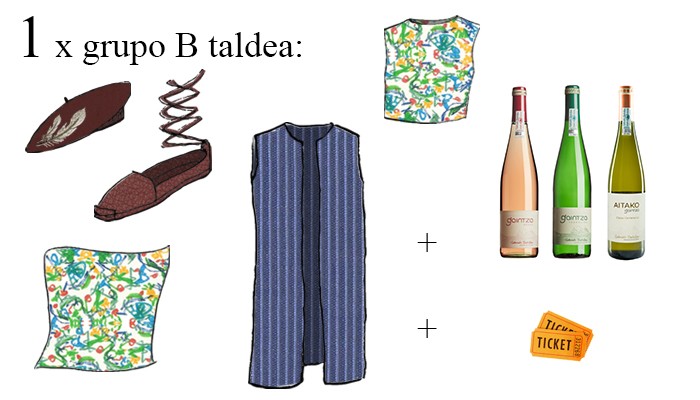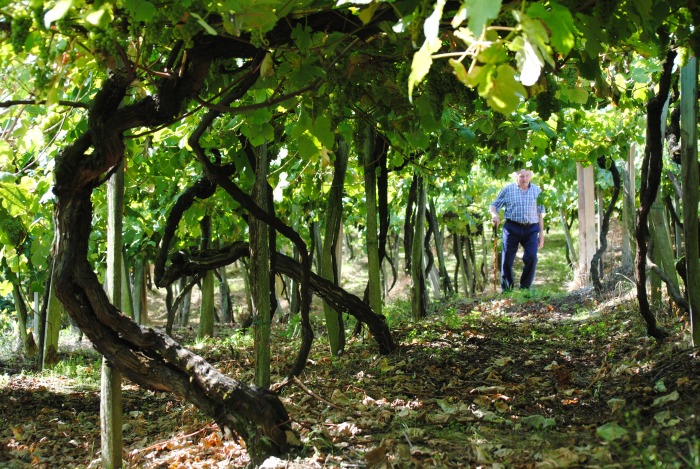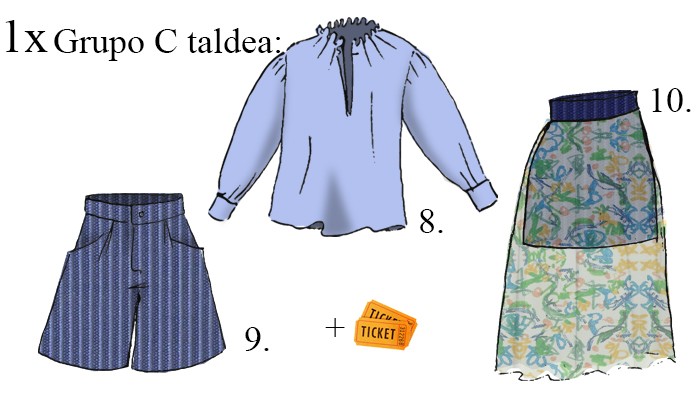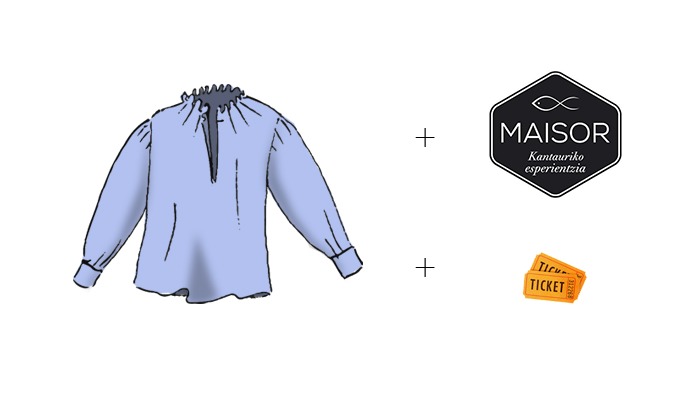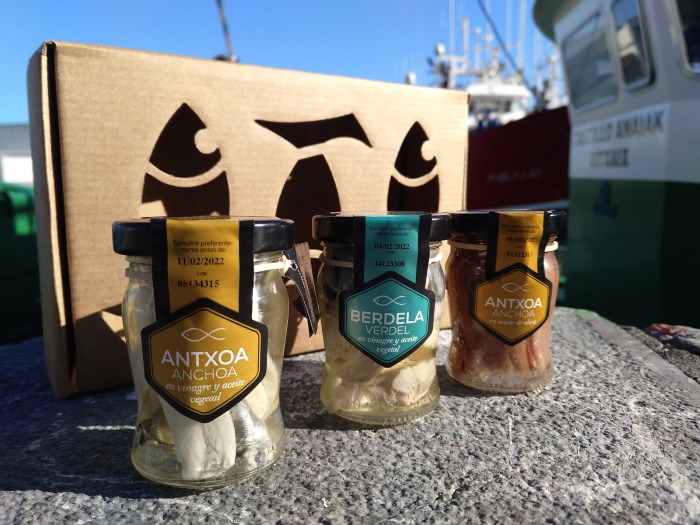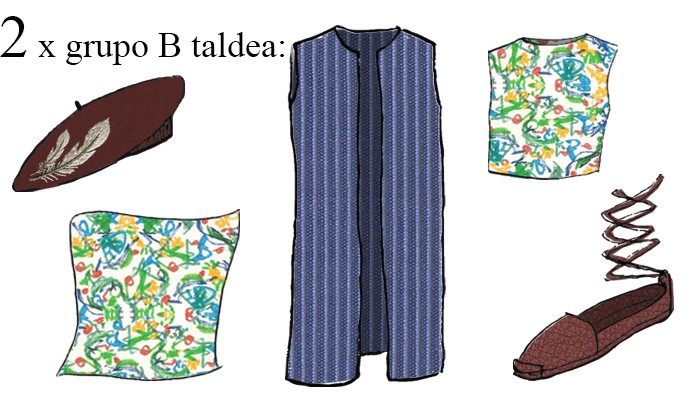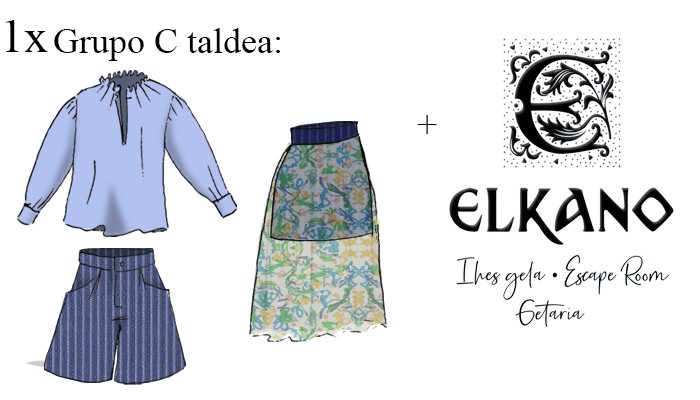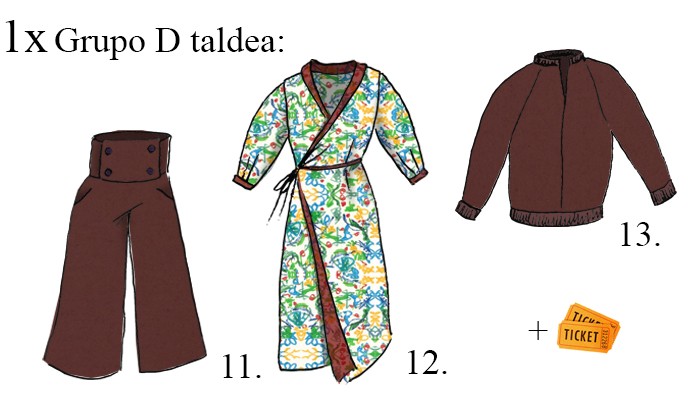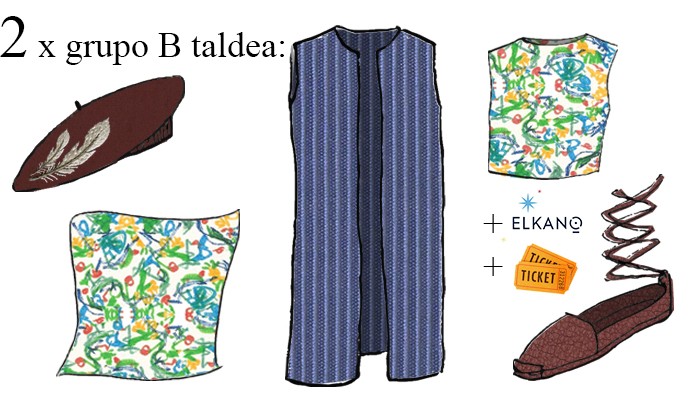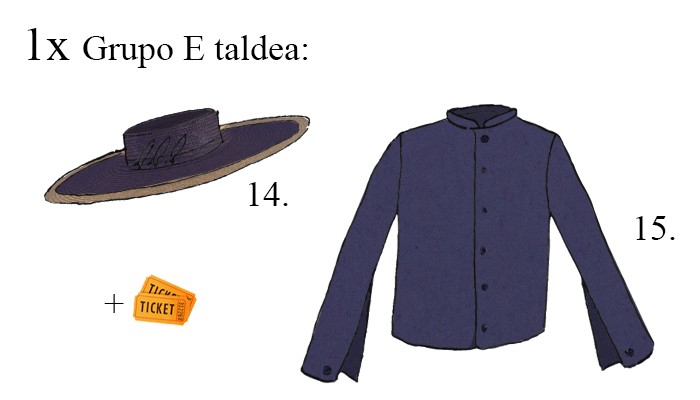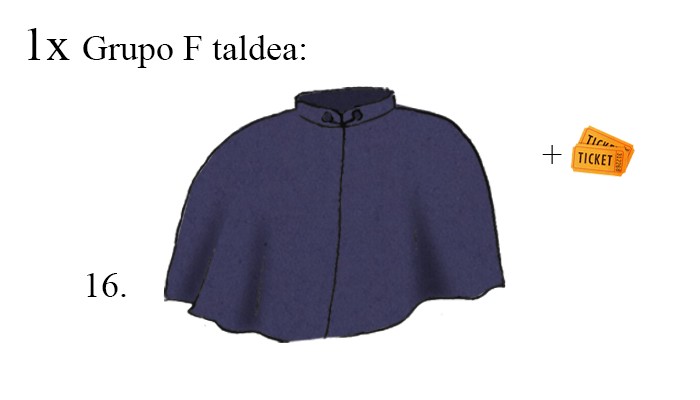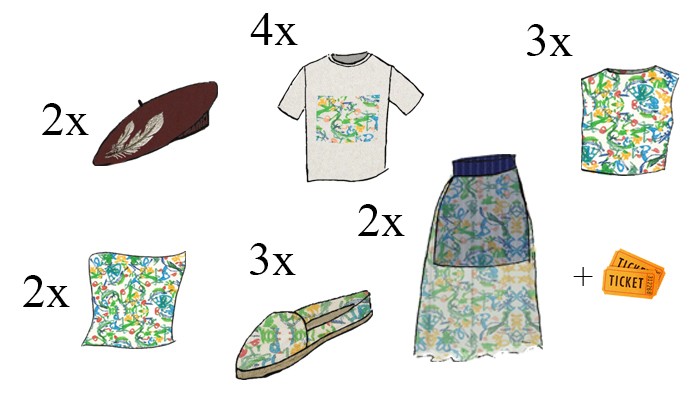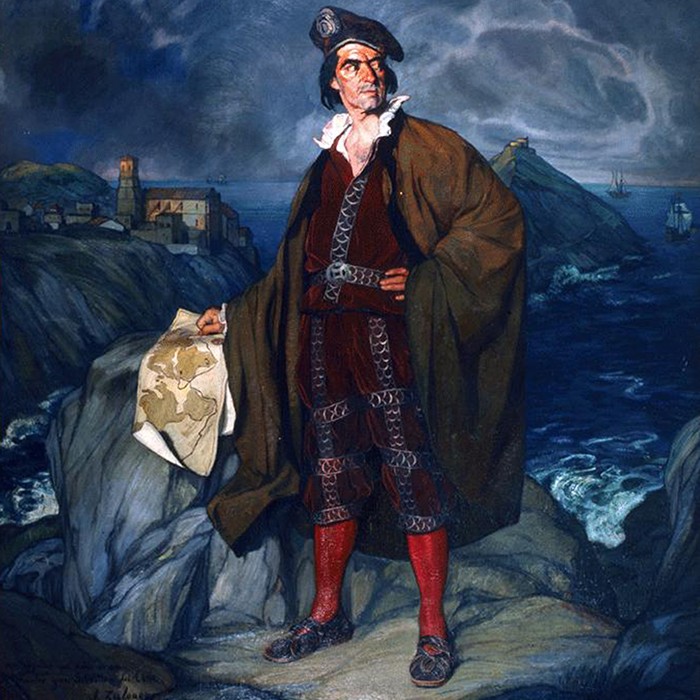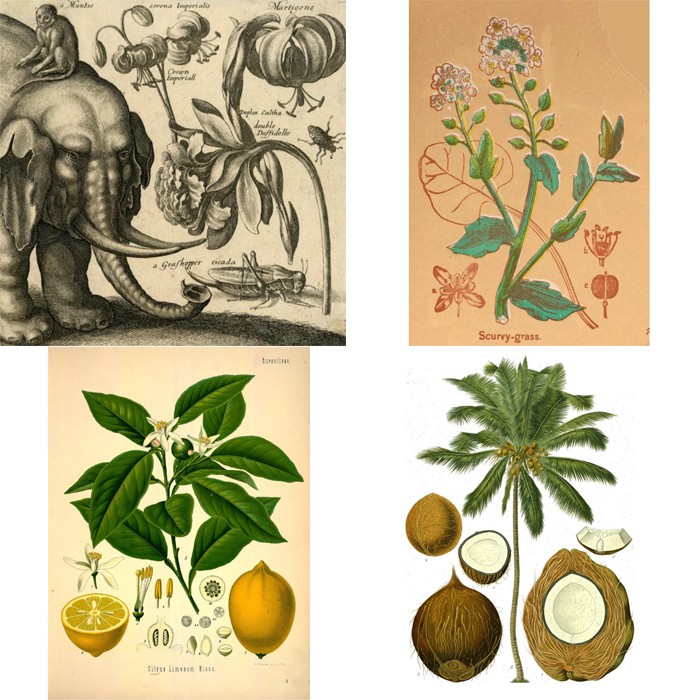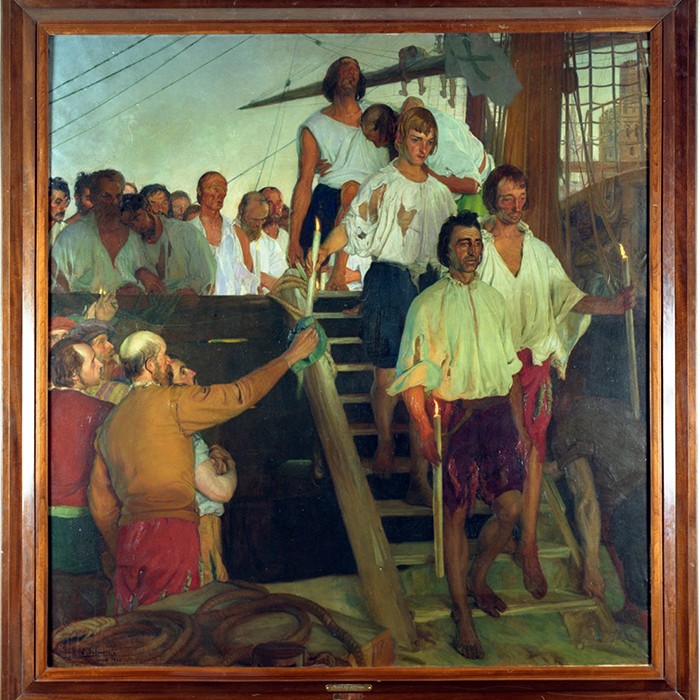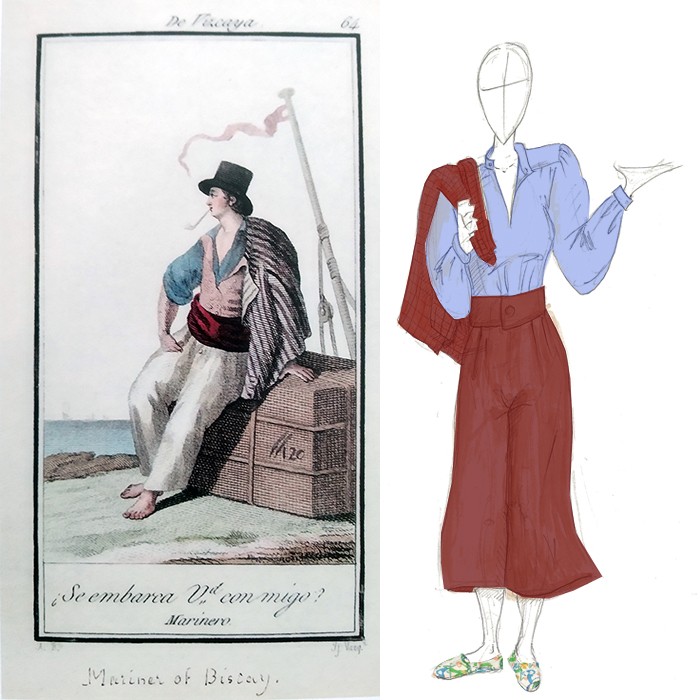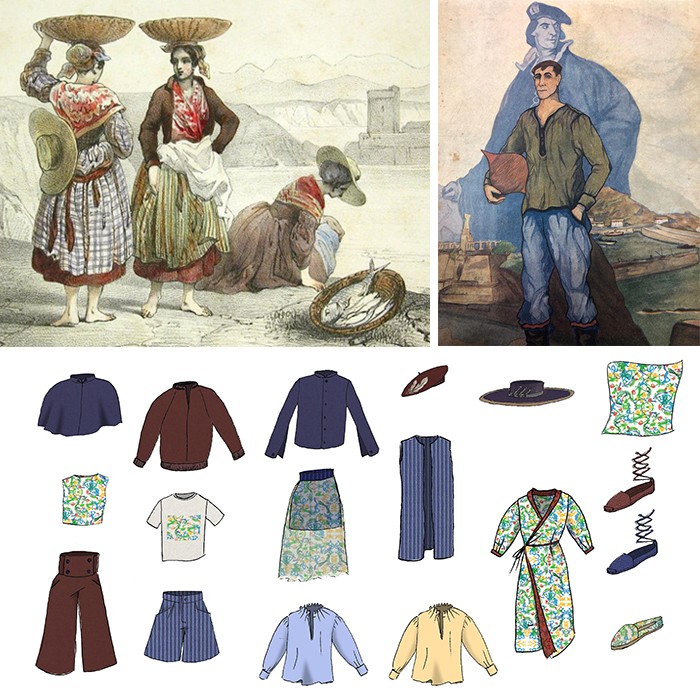Did you know that in 1522 the navigator from Getaria, Juan Sebastián Elcano, circumnavigated the globe for the first time and that it was a milestone comparable to the first moon walk and one of the greatest contributions of the Basques to the history of mankind? Despite his incredible feat, today this story is still unknown to many people, that is why, coinciding with the 500th anniversary of that first circumnavigation of the globe, we have designed a fashion collection, with the support of the Elkano 500 Foundation, to tell this story in a different way.
The first circumnavigation may have been circumstantial, but it was no coincidence, which is why the ELKANO collection is a tribute to all these people, as well as to other more unknown sea related labourers, generally carried out by women, such as fisherwomen, fishmongers, boatwomen and shopgirls. We have been inspired by their clothing to design each of the pieces in this collection.
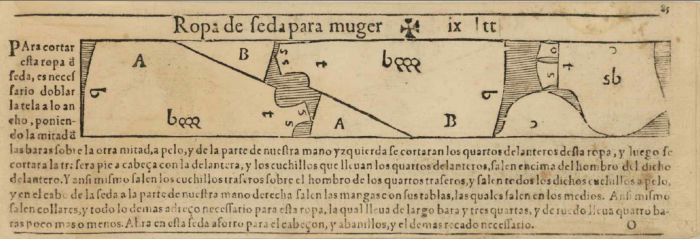
Book of geometry, practice and design, Juan de Alcega, 1580.
The sea is therefore the environment in which all these stories took place. Therefore, sustainability and respect for the environment is also one of the pillars of the project, which is materialised through the use of natural, organic or recycled fabrics of local origin (Spain and Europe), such as wool or linen, and the manufacture in local workshops.
ELKANO is also a capsule collection designed in an innovative way for 2 reasons:
1, Collaborative collection in which the 16 pieces that compose it will be designed and produced in collaboration by different designers, artisans and bespoke companies from Gipuzkoa and other parts of Spain.
2, Participatory collection in which the garments that we will finally produce will be chosen by you and the rest of the backers who participate in the campaign, depending on the budget obtained.
Main features and goals of the crowdfunding campaign
The ELKANO capsule collection consists of these 16 pieces. In addition, as a unifying element, Leire Larretxea (Lele Prints, Donostia) will design a botanical print inspired by the plants and spices they collected and discovered on that trip:
1- T-shirt printed with the ELKANO print, made of GOTS organic cotton. Made in Bangladesh (Fair Wear label) and printed in Gipuzkoa.
2- Printed espadrilles with ELKANO print, made in collaboration with Espartín (Zumaia).
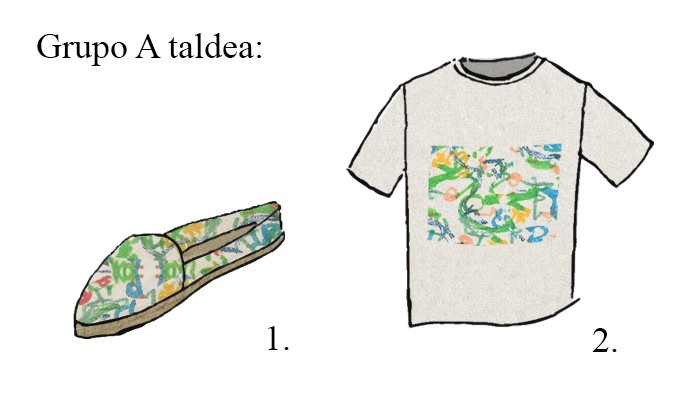
3- Scarf decorated with the ELKANO print, made of 100% silk, produced in Barcelona and hand-sewn.
4- Embroidered txapela Basque traditional beret inspired by Juan Sebastián Elkano, made by Boinas Elosegui (Tolosa) in 100% wool and lined with Elkano print.
5- ELKANO printed top in cotton. Women's model. Made in Spain.
6- Long vest inspired by Juan Sebastián Elkano. Unisex model in recycled polyester knitted fabric (Catalonia). Made in Spain.
7- Leather shoes inspired by those worn by Basque whalers. Designed in collaboration by Re_byBárbaraLeón and Zapatari. Handmade in Navarra.

8- Linen shirt inspired by those worn by Basque sailors and fishermen. Wide unisex model in linen fabric (Catalonia). Made in Spain.
9- Short trousers inspired by those worn by Basque sailors and fishermen. Men's and women's models, with recycled polyester knitted fabric (Catalonia). Made in Spain.
10- Multi-position skirt with ELKANO printed fabric and recycled polyester knitted fabric underskirt (Catalonia). Made in Spain.

11- Long trousers inspired by those worn by Basque sailors and fishermen. Men's and women's models, with cotton fabric (Catalonia). Made in Spain.
12- Elkano printed dress, inspired by fishmongers. Women's model in cotton fabric. Made in Spain.
13- Bomber inspired by the jackets worn by Basque sailors and fishermen. Unisex wide model, with 100% wool fabric (Leon). Made in Spain.

14- Panama hat with inner lining and ELKANO print. Designed in collaboration with the milliner Gorka González (Donostia) and inspired by fisherwomen, fishmongers and fish sellers. Made in Spain.
15- Jacket in 100% merino wool fabric (León) with inner lining with ELKANO print. Made in Spain.

16- ELKANO cape: Designed in collaboration and made by Capas Seseña (Madrid). Unisex cape in 100% wool, lined with ELKANO print.
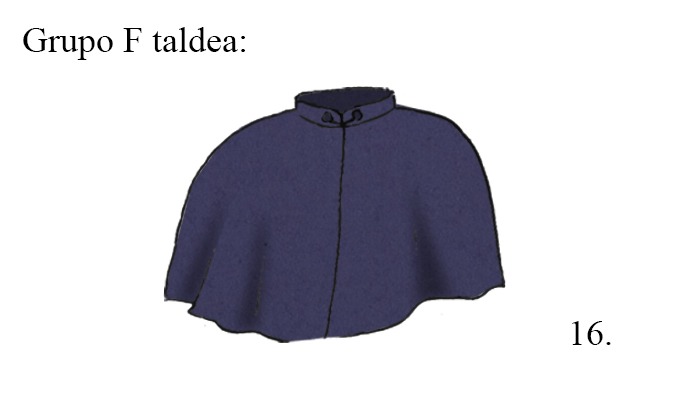
The main objective of this collection is to value and disseminate, through fashion, the figure of Juan Sebastián Elkano in particular, and the Basque sailors and whalers, as well as the fisherwomen, fishmongers and female rowers, so that this story reaches new audiences and places.
With the minimum budget, we will make a prototype of each piece of the collection, in order to disseminate it through fashion editorials, social media, presentation events, as well as having a presence in the events and activities of the Elkano Foundation, not linked to fashion. We will also make a limited production of the most economical pieces, for rewards.
With the optimum budget, we will be able to make a limited production of each (or some, depending on the budget) of the garments, so the garments and the quantities we make will depend on you and the rest of the campaign's backers. In short, this will be a participatory and sustainable collection, in which we will avoid unnecessary overproduction.
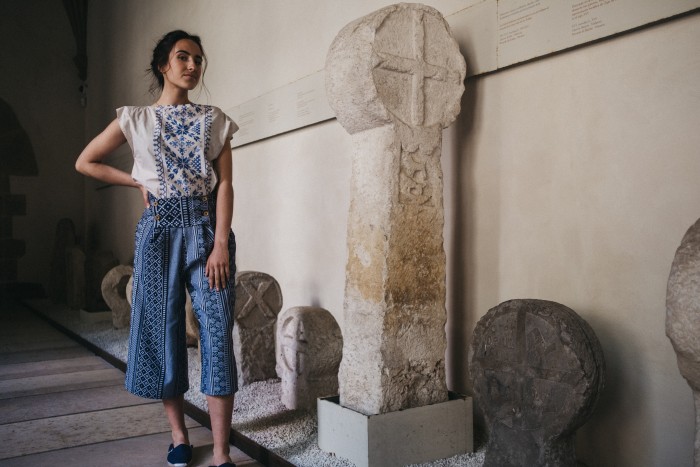
Why this is important
ELKANO is a project that combines heritage, culture, fashion and sustainability. Whether you are one of those people who believe that knowing our history is important or if you are passionate about fashion or a collector, we would love for you to be part of the project, to support us, but above all to choose one of the garments from the collection and travel around the world wearing it!
This first circumnavigation coincides in time with the beginning of the external influence, in the traditional and characteristic clothing of the Basque people. This is no coincidence, since in that century, technological and geographical advances allowed Basques to get to know new cultures, new ways of doing things and also to start adopting fashions and habits from other places.
The language, culture and clothing that had been preserved almost intact in the Basque Country, began to mix with French, Spanish and other influences from all over the world. Hence the cultural and social interest in researching this period of which so little remains.
In 5 years of experience, we have seen the power of design and fashion transmit stories like this in a universal way and reach audiences that otherwise would not be reached, people interested in design, fashion, culture and history. Young, adult and older men and women who, like us, believe that it is important to know the past in order to move towards a better future. People from all over the world who know that by supporting local, sustainable fashion and entrepreneurship with small gestures, they contribute to create a better future for humanity, the economy and the planet.
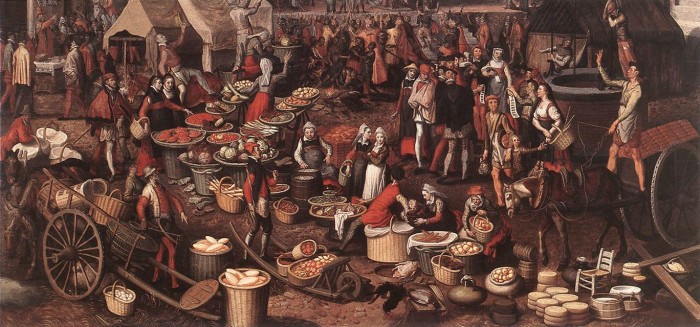
Team and experience
Amarenak is a project that was born thanks to a matchfunding campaign in the first edition of Meta!2016. In that campaign, we managed to finance the first production of our modernised kaiku jackets. From that campaign we discovered that Basque culture has a textile heritage that is as rich as it is unknown and we took on** the mission of making them known with our work, creating #storiestowear.
Oihane Pardo (Donostia) is in charge of Amarenak and in these 5 years has managed to modernise several traditional Basque garments, becoming an example of updating heritage and building bridges between historians, museums and society.
Leire Crespo is a 4th year student of fashion design at the University of Cesine, in Santander. She provides support in the management of social media and content at Amarenak.
This is one of the most ambitious projects we have faced to date, so we wanted to have the best possible collaborators to carry it out:
Gorka González is a designer, hatmaker and local from San Sebastian. In his workshop, located in San Sebastian, he makes exclusive pieces by hand. Always in search of new shapes and styles, but understanding and respecting the classic manufacturing processes.
Zapatari is an artisan shoe shop founded in 1995 by Mª Carmen del Río and Xavier Iturriotz in Eraso (Navarra). They use hand-cutting, pincer assembly and stitched sole fixing techniques. The materials used are of the highest quality: vegetable tanned leathers and soles made from recycled mountain or tyre materials.
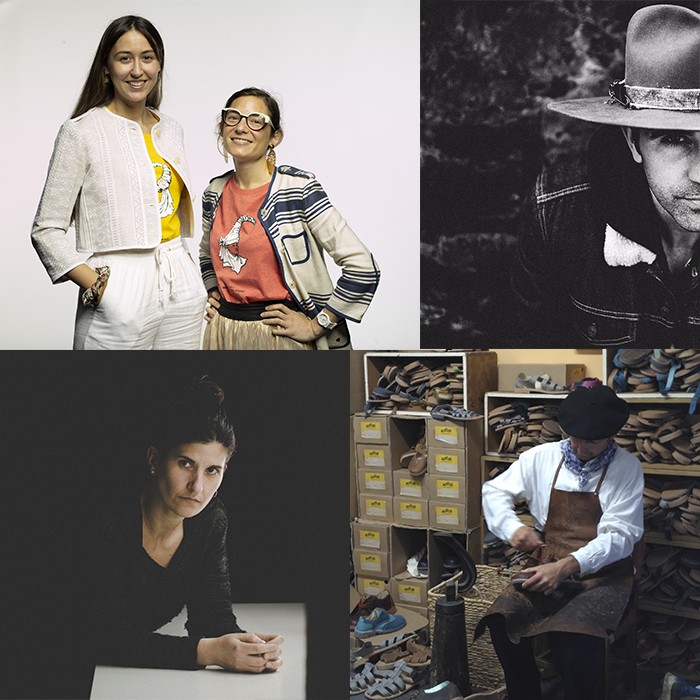
Lëlë prints (Leire Larretxea) after finishing her studies in Fine Arts and graphic design, discovered through Goiuri Bikini Denda what she is most passionate about: designing prints. After designing for the shop's brand, she created her own, Lëlë prints, with original and eye-catching prints full of flowers and birds and above all, with large doses of colour.
Capas Seseña is a family business founded in 1901, now in its 4th generation, and is practically the only one in the world dedicated exclusively to the design, manufacture and sale of clothing capes. This, together with its exquisite list of clients, has made it a world reference for the cape.
Boinas Elosegui was founded in Tolosa in 1858, since then it has been dedicated to the manufacture of headwear, mainly the traditional txapelas (Basque berets), with all its production processes integrated, sustainable and local.
Re_by Bárbara León is dedicated to the creation of footwear redesigned and reconstructed from waste, linking craftsmanship in footwear and the reuse of textile waste with the use of modern tools of creation and design, to obtain quality, durable and stylish reclaimed footwear.
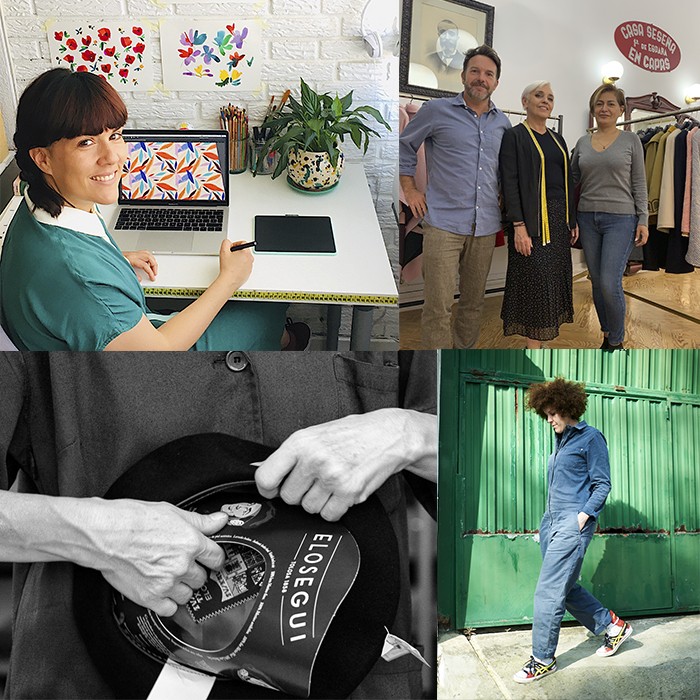
Espartin is a shop specialising in traditional espadrilles made by craftsmen from the Basque Country and sewn by hand. Its main objective has been to manufacture comfortable and quality footwear with 100% natural and ecological cotton fabrics.
For the communication and diffusion of the collection we will also count on:
The localSS: Brand of the illustrator from San Sebastian Leire Jaime (1986), who will be in charge of making the illustrated postcard that tells the story of the collection in a graphic and simple way.
LACØRTE films audiovisual production company with 5 years of experience with which we work regularly and which has made the video for the campaign. Currently its founder, Jesús Lacorte, is a student of the Elias Querejeta Zine Eskola (Donostia).
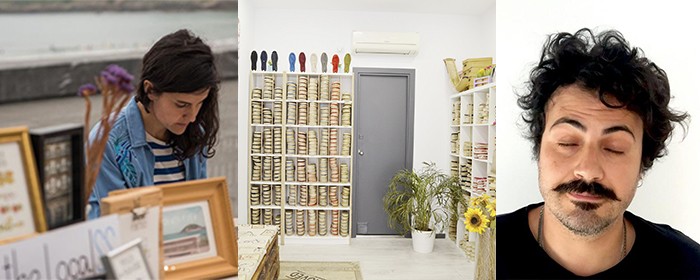
In addition, in the research and documentation process to design this collection we have had the support of the Elkano 500 Fundazioa: and the help of museums such as the Basque Maritime Museum, Albaola, San Telmo Museum in San Sebastian and Gordailua in Irun.
